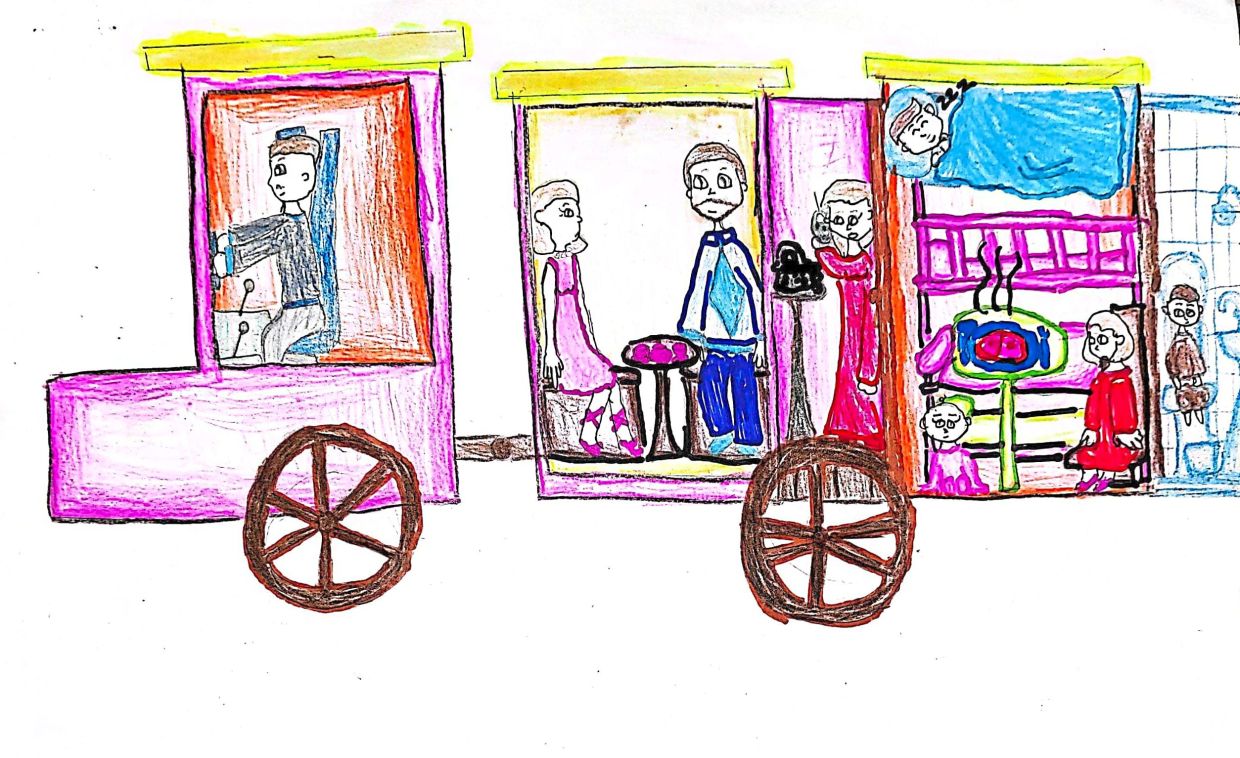Bethany Wang Qi Syuen, 10
Train is one of the modes of public transport in Malaysia. The service plays an important role in helping people get to school, work and even go on holidays.
A train is a series of connected vehicles that run on tracks and can carry people or goods across short or long distances.
Unlike cars or buses that travel on roads, trains don’t get stuck in traffic. They move smoothly and can be faster, safer and even more comfortable for long trips.
One of the most exciting train routes in Malaysia is the East Coast Rail Link (ECRL).
When it is completed next year, the ECRL will connect the east coast states of Kelantan, Terengganu and Pahang with the west coast states like Selangor and Kuala Lumpur.
This means people living in the east coast of Peninsular Malaysia can reach the west coast in less time, making it easier to visit family, travel for work or explore different parts of the country.
Malaysia also has other important train services like KTM Komuter for daily travel around cities, ETS (Electric Train Service) for inter-state journeys, and the MRT (Mass Rapid Transit) and LRT (Light Transit Transit) systems that help people move around in the Klang Valley.
Do you know that the Shinkansen, also known as the Japanese bullet train, is famous for its high speed?
The fastest Shinkansen can reach a top speed of 320km/h and it has been in service since 1964.
Trains are good for the planet too – they produce less pollution compared to cars and planes.
Recently Starchild asked readers to send in letters on the topic, My Dream Train. Here’s what they had to say.
Asher Wang Qi Chuen, seven, says: “My train is designed as a hybrid cargo train that runs on both gas and electricity. It’s very colourful, has a star logo and can go very fast with wheels of different sizes. My cargo train transports cargo to various destinations quickly. It’s the top three fastest and coolest trains in the world.”
“My dream train is a compact and cosy train made for family travel. It has a small lounge, a telephone room, a toilet and a bedroom with quadruple decker bunk beds for the family to sleep. It is powered by electricity and doesn’t emit harmful smoke,” says older sibling, Bethany Wang Qi Syuen, 10.
“My dream train is big, fast and very colourful with 20 carriages. One carriage is a library. Another is a playground with slides and trampolines. There is also a food carriage which has lots of food including different types of main course, ice cream, soup and fresh fruit for everyone to enjoy while they travel.”
“My dream train can continue on its tracks non-stop using solar power. It can take people to all places without polluting the environment. I hope one day this dream train becomes a reality and I would be able to eat as many burgers as possible on my way home,” writes Lyu Liang Fu, 10.
ITEM: Taste is one of our five senses. We taste food using our tastebuds, which are on our tongue.
There are five main tastes – sweet, sour, salty, bitter and savoury (umami).
What is your favourite food? Is it something your mother or father cooks? Or maybe something you eat at a restaurant?
You can also write a story about a funny, yucky or super tasty food. Maybe you tried something new for the first time!
Draw your favourite food or a food that made you feel happy, surprised or even a little scared.
Email your contributions to lifestyle@thestar.com.my by July 25. Please put “STARCHILD: My Taste Buds” in the subject line of your email.
Scanned drawings should be in jpeg format, with a resolution of 200dpi.
Your contributions must carry your full name, age (open to children aged 12 and below only), gender, phone contact, and address. Instead of handwritten letters, please type out your letters.









